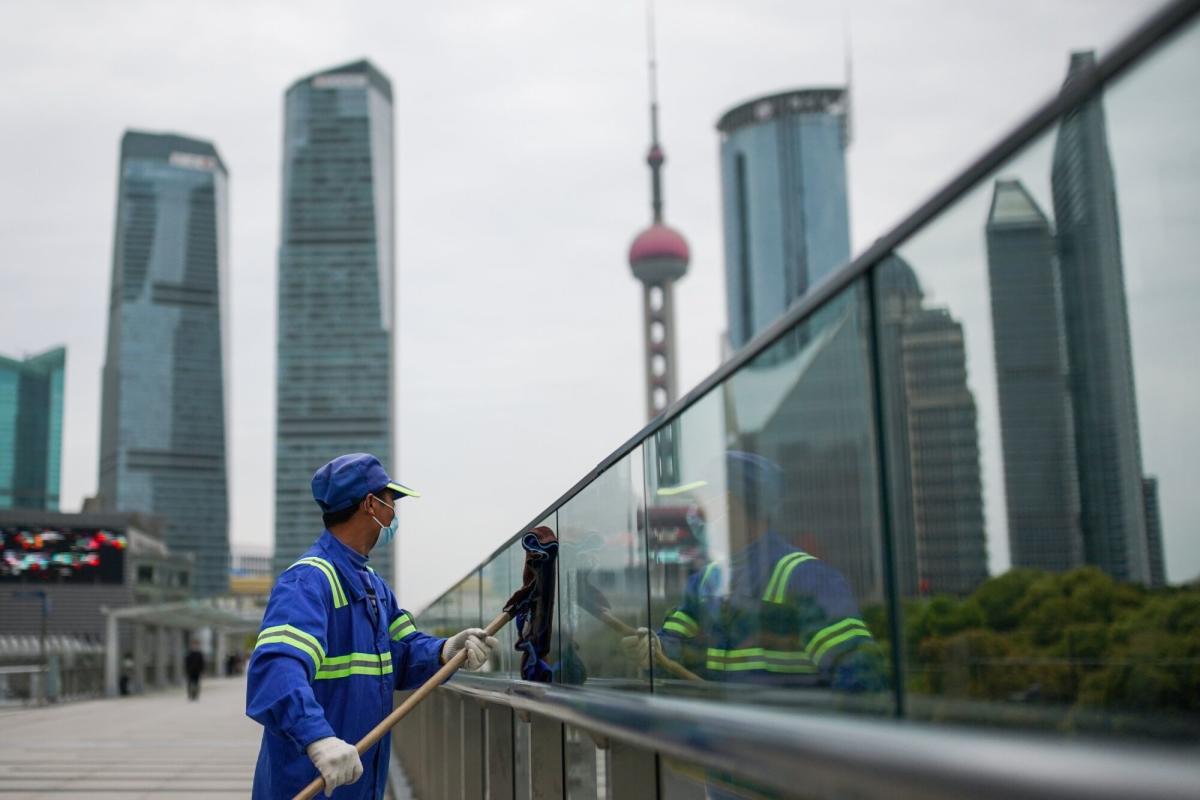(Bloomberg) — President Xi Jinping unveiled aggressive plans to support China’s local governments, as the ruling Communist Party unveiled a long-term plan for the world’s second-largest economy that offered few surprises. big ones.
Most Read from Bloomberg
China’s top leader mapped out measures to fix the debt crisis facing regional authorities in a resolution by some 22,200 people at a mass meeting broadcast by the Xinhua News Agency on Sunday. Those plans – which have been described by state media – are aimed at shifting more money from the center to local coffers, such as letting local governments get a bigger share of consumption tax.
Xi’s proposals mark the “third major tax and fiscal reform” in recent history, said Ding Shuang, chief economist for Greater China and North Asia at Standard Chartered Plc. He cited a 1994 move to increase the central government’s share of revenue over local authorities, and a series of decisions starting in 2013 that allowed regions to issue bonds on their own, as other major changes.
“The central government budget was set too high and now it is being adjusted,” Ding said of the plan put in place under former President Jiang Zemin. The changes will “reduce the imbalance between central and local government spending responsibilities,” he added.
The yuan was little changed in early trading on Monday as investors digested the plenum’s statement and a surprise drop in short-term interest rates. More specific policies could be presented later this month by a 24-man Politburo meeting that focuses on economic policies for the year July.
The four-day Third Plenum in Beijing was the first meeting to focus on the reform of the Central Committee that Xi has presided over since winning a third term in power. About 400 officials have endorsed his vision of advanced manufacturing to boost China’s $17 trillion economy, suggesting no major changes to his grand plans.
Xi last used the forum to outline economic reforms in 2013, when leaders vowed a “firm role” for the markets that fueled optimism about future liberalization policies. The successful leader since then has well publicized his vision for greater government control over the economy and his determination to rid the nation of debt and bankruptcy. The decision reflected that, serving as a confirmation of his long-term vision.
“What seems clear is that China’s leadership is very happy with its supply chain growth, despite complaints from around the world,” said Alicia Garcia Herrero, Chief Economist for Asia Pacific at Natixis. . “It is likely that the reason is the urgency with which Xi Jinping wants China to reduce its technological dependence on the US and self-reliance.
Instead, Xi seemed to be adjusting policies better to deal with the risks. Officials are under pressure to solve the 66 trillion ($9.1 trillion) local government debt problem and stabilize the economy, as US and European leaders accuse Beijing of using foreign assets to pay for it. minimum domestic requirements. Allocating a larger share of consumption tax to regions can solve both problems by encouraging authorities to boost consumer spending and giving them a new form of financing.
While the details of how the policy will be implemented were left out of the wider decision, slapping on additional property taxes could put consumers at risk, as property downturns affect citizens’ wealth. Retail sales rose at their slowest pace last month since December 2022, as China’s second-quarter growth figures fell short of expectations.
Officials also pledged to give city governments greater autonomy to manage local property markets, following policies two years ago that allowed localities to better stem the housing slump. They also vowed to build more subsidized housing, as well as reform the pre-sale system, which has made it impossible for developers to offer millions of homes that are already being paid for by citizens.
China’s most powerful leader since Mao Zedong said in a separate statement that national security was ranked “outstanding” by the four-day summit, hinting at its importance to the economy. The official resolution, however, said Beijing would strive to “achieve a better relationship” between development and security.
Officials also hinted at a possible expansion of Beijing’s surveillance plans, vowing to “review and develop a unified national approach to population control.” That marked the first use of the term by senior leaders.
Alfred Wu, an associate professor at the National University of Singapore, Lee Kuan Yew School of Public Policy, said:
The development of “high-quality growth” appears in the report as expected – a vague slogan that is often interpreted to emphasize the quality of economic growth rather than its absolute speed. It is based on Xi’s ambitions to boost China’s economy by moving up the value chain through technological innovation, such as electric cars and solar panels.
The announcement called on private enterprises to step up participation in the country’s major technology projects, and pledged to “open the country’s major scientific research projects to private enterprises.” That open invitation to private sector participation lowered new standards and boosted the share of private firms, according to Bloomberg Economics.
China has also promised policy reforms for emerging sectors including artificial intelligence, new materials and quantum technology. The community is committed to developing sustainable supply chains for the region that include integrated circuits and advanced materials.
Developing chips and AI is central to Beijing’s broader vision of replacing the technology with the US, which is increasingly trying to outdo China. Economists have listed technological independence as one of the top three economic issues China’s leaders must address in the medium to long term.
“I think the third plenum did not change the government’s policy goals,” said Zhiwei Zhang, president and chief economist at Pinpoint Asset Management, “but it introduced new measures to achieve such goals.”
–With help from Jessica Sui, Cormac Mullen, James Mayger, Yujing Liu, Lucille Liu, Josh Xiao, Tian Ying and Alan Wong.
(Updates with additional information, reviewers’ comments.)
Best Reads from Bloomberg Businessweek
©2024 Bloomberg LP
#Vows #Revive #Chinas #Finances #Indebted #Regions

